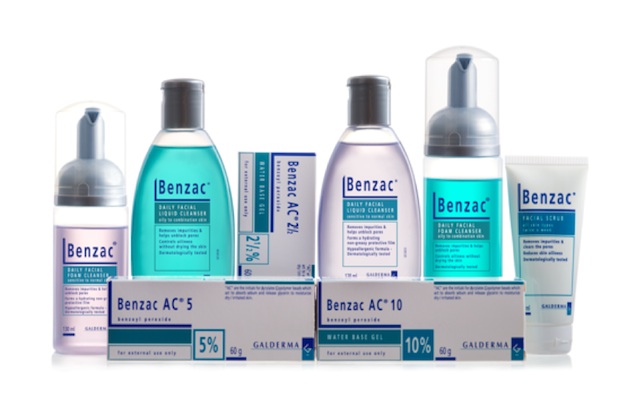Adult Acne: 5 things you need to know about zits
updated the 13 June 2014 à 22:38We speak to a skin expert and find out how to tackle those pesky zits!
As much as we want to keep the horror of zits hidden deep into our past and teeny bopper years, the reality is that zits can – and will – peek their pesky heads well into adulthood. In no way are zits glamourous and while we can use the magic of makeup to conceal zits, it is always better to nip the problem in the bud.
Benzac, a leading dermatologist-recommended acne brand, recently launched a daily facial care range dedicated to acne treatment for different skin types. Typical acne treatment products only aid people with a certain skin type while exacerbate the condition for people with combination skin for instance. Therefore, it was important to realize that acne sufferers do have different skin types and the cleansers they utilize should suit their skin.
Benzac’s line of cleansers come in foam and liquid formulas and contain herbal plant extracts like Calendula and Aloe Vera for a soothing experience that is gentle on the skin. Coupled with the Benzac AC Gel that contains the active ingredient, Benzoyl Peroxide (an antimicrobial that has keratolytic action to unblock pores), you would be well equipped to target zits and attain a clear complexion within days.
So, instead of holding a perpetual fear of zits, we spoke to Dr Hazel Oon of the Singapore National Skin Centre and received some valuable information on zits.
Here are 5 things you should know to prevent your next breakout:
1. What are the top causes of acne/ zits in adults?
Acne is due to several factors. During puberty, rising androgen levels trigger an increase in oil on the skin. This fuels the growth of a bacteria, Propionebacterium acnes, which promotes skin inflammation. Follicles are also plugged with excess skin cells, forming comedones (blackheads and whiteheads).
Acne is in part heritable. It occurs earlier and with greater severity in individuals with a positive family history.
Contact with oily cosmetics and picking at the acne lesions (acne excoriee) can induce more acne. Less common forms of acne include drug-induced acne from application and intake of steroids, psychotropic medications and anticonvulsants.
2. Can we use a facial scrub when we have zits?
Yes but be mindful not to traumatize the acne by over-vigorous cleansing.
3. How can we prevent the appearance of zits?
Use noncomedogenic products. Avoid greasy makeup and hair products. Observe a simple skin care routine of cleansing the face. If there was a recent acne flare, it may be necessary to maintain acne topicals for a few months after to prevent a relapse.
4. Is it a good idea to cover up zits with makeup?
Acne can give rise to comedones, red and inflamed papules, cysts as well as post-inflammatory redness and pigmentation. Makeup can be helpful in concealing the lesions and improving self-confidence. Choose light, non-greasy makeup, which will not aggravate acne.
5. How do we choose the right cleanser to combat acne?
Choose a mild, pH balanced, non-comedogenic cleanser.
This is to prevent irritation to the skin, which can damage the skin barrier and cause redness and peeling. Note that adult skin, as opposed to that of a teen’s, is less oily due to decreased production of sebum (oil). Frequently in adult skin, the skin type seen is combination skin. It is also more sensitive and less able
The Benzac facial care range is available in Watsons stores from end January 2014, and other stockists.
Tarandip Kaur




